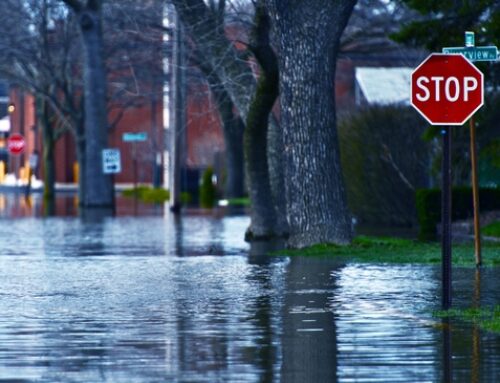Tropical Storm Harvey has devastated the state of Texas in the past week.
A total of 1 trillion gallons of water have fallen, Houston Mayor Sylvester Turner said in a press conference Tuesday evening.
The National Weather Service announced Tuesday afternoon that preliminary data indicates the all-time record for total rainfall from a tropical system in the continental U.S. was broken in Cedar Bayou, Texas — about 30 miles from downtown Houston — at 51.88 inches.
If confirmed, the record is .12 inches shy of the record for total rainfall from a tropical storm in the entire U.S., including Hawaii and Alaska.
“The state of Texas is about to undergo one of the largest recovery-housing missions that the nation has ever seen,” FEMA Administrator Brock Long said during a news conference Monday. “It’s a long process. Housing is going to be very frustrating in Texas. We have to set the expectations.”
For displaced survivors, FEMA’s goal is to move them out of shelters and into temporary housing near where they work, and then a return to a permanent residence, Long said. Anyone in a shelter or without financial means to replace their housing in 18 counties qualifying for individual disaster assistance can receive aid for a motel or to rent an apartment.
“There may be as many as half a million Texans who are eligible for financial support,” Vice President Pence told KKTX radio on Tuesday.
Homeowners suffering flood damage from Harvey are more likely to be on the hook for losses than victims of prior storms — a potentially crushing blow to personal finances and neighborhoods along the Gulf Coast.
Insurance experts say only a small fraction of homeowners in Harvey’s path of destruction have flood insurance. That means families with flooded basements, soaked furniture and water-damaged walls will have to dig deep into their pockets or take on more debt to fix up their homes. Some may be forced to sell, if they can, and leave their communities.
Homeowners without flood insurance can possibly apply for federal disaster relief benefits, but those come in the form of low interest loans, a burden for those already struggling with too much debt.
“There’s going to be a huge uninsured economic loss here,” said Pete Mills, a senior vice president at the Mortgage Bankers Association.
“If you have $30,000 in damages, you can get maybe $25,000,” Mills said. “But there will be interest, and then you have your mortgage. You’ll have two loans on your house.”
For homeowners facing big bills, some banks may be willing to help. During a disaster like Harvey, they typically will institute a type of forbearance program on any borrowers who are in the disaster’s impacted counties.
Wells Fargo, the nation’s largest mortgage lender, said Monday that it was suspending all negative reporting to credit bureaus, collection calls and foreclosure procedures against customers in the impacted communities at least through the end of September.
Customers who contact Wells Fargo can get disaster relief for 60 to 90 days, and can postpone payments. Further relief will be offered case-by-case, the bank said.
Loretta Worters, a spokesperson for the Insurance Information Institute, said floods do have a least one positive effect: They convince people who had shrugged off the risk to their homes to buy policies.
But the memory quickly fades, she added, noting that despite the blows of Katrina and Sandy and other storms only 12% of homeowners nationwide had flood insurance last year.
“People buy coverage immediately after a storm, then it starts to drop,” Worters said. “Three or four years later, we’re back to where we started.”
“The Coast Guard is continuing to receive upwards of 1,000 calls per hour,” US Coast Guard Lt. Mike Hart said Monday. “Today alone, the Coast Guard has rescued over 3,000 people. That includes both air rescues and rescues using boats.”
Since midnight Sunday, more than 2,300 calls have poured in to the Houston Fire Department, including 400 calls for rescue Monday afternoon, Houston officials said. Four people have died as a result of the catastrophic storm.
For information on ways to donate to the Harvey relief efforts, here’s an article from Wired with some great places and resources: https://www.wired.com/story/harvey-donations-amazon-wish-lists-cash/









